Related Research Articles
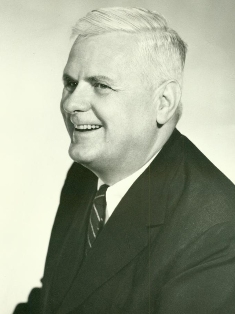
Alonzo Church was an American mathematician, computer scientist, logician, and philosopher who made major contributions to mathematical logic and the foundations of theoretical computer science. He is best known for the lambda calculus, the Church–Turing thesis, proving the unsolvability of the Entscheidungsproblem, the Frege–Church ontology, and the Church–Rosser theorem. He also worked on philosophy of language. Alongside his doctoral student Alan Turing, Church is considered one of the founders of computer science.
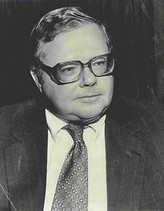
Roger Lea MacBride was an American lawyer, political figure, writer, and television producer. He was the presidential nominee of the Libertarian Party in the 1976 election. MacBride became the first presidential elector in U.S. history to cast a vote for a woman when, in the presidential election of 1972, he voted for the Libertarian Party candidates John Hospers for president and Theodora "Tonie" Nathan for vice president.

Confederados is the Brazilian name for Confederate expatriates, all white Southerners, who fled the Southern United States during Reconstruction, and their Brazilian descendants. They were enticed to Brazil by offers of cheap land from Emperor Dom Pedro II, who had hoped to gain expertise in cotton farming.
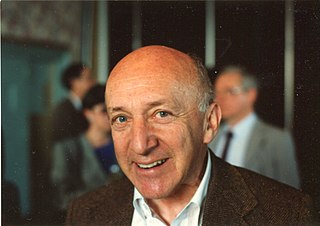
Leon Albert Henkin was an American logician, whose works played a strong role in the development of logic, particularly in the theory of types. He was an active scholar at the University of California, Berkeley, where he made great contributions as a researcher, teacher, as well as in administrative positions. At this university he directed, together with Alfred Tarski, the Group in Logic and the Methodology of Science, from which many important logicians and philosophers emerged. He had a strong sense of social commitment and was a passionate defensor of his pacifist and progressive ideas. He took part in many social projects aimed at teaching mathematics, as well as projects aimed at supporting women's and minority groups to pursue careers in mathematics and related fields. A lover of dance and literature, he appreciated life in all its facets: art, culture, science and, above all, the warmth of human relations. He is remembered by his students for his great kindness, as well as for his academic and teaching excellence.
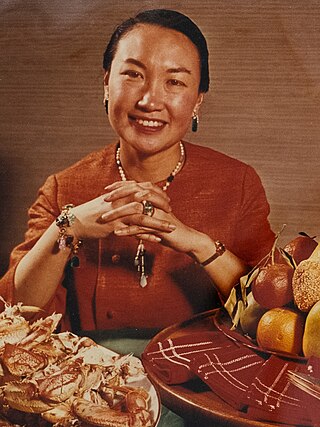
Jade Snow Wong was a Chinese American ceramic artist and author of two memoirs. She was given the English name of Constance, also being known as Connie Wong Ong.
Brazilianist is a scholar, either a non-Brazilian or a Brazilian living abroad, who teaches, conducts research, and publishes about Brazil. Common fields and disciplines are history, anthropology, sociology, political science, geography, literature, and music. There is great diversity of interests amongst Brazilianists.

Daniel J. Kevles is an American historian of science best known for his books on American physics and eugenics and for a wide-ranging body of scholarship on science and technology in modern societies. He is Stanley Woodward Professor of History, Emeritus at Yale University and J. O. and Juliette Koepfli Professor of the Humanities, Emeritus at the California Institute of Technology.
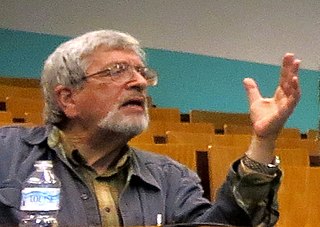
Richard Filler Taruskin was an American musicologist and music critic who was among the leading and most prominent music historians of his generation. The breadth of his scrutiny into source material as well as musical analysis that combines sociological, cultural, and political perspectives has incited much discussion, debate and controversy. He regularly wrote music criticism for newspapers including The New York Times. He researched a wide variety of areas, but a central topic was Russian music from the 18th century to the present day. Other subjects he engaged with include the theory of performance, 15th-century music, 20th-century classical music, nationalism in music, the theory of modernism, and analysis. He is best known for his monumental survey of Western classical music, the six-volume Oxford History of Western Music. His awards include the first Noah Greenberg Award from the American Musicological Society in 1978 and the Kyoto Prize in Arts and Philosophy in 2017.

The Irish community is one of New York City's major and important ethnic groups, and has been a significant proportion of the city's population since the waves of immigration in the late 19th century.
Maxine L. Margolis is an American anthropologist and an inductee of the American Academy of Arts and Sciences. She is a professor of anthropology at the University of Florida in Gainesville, and has been with the university since 1970. Margolis holds a Ph.D. in anthropology from Columbia University. Margolis received the BRASA Lifetime Contribution Award in 2014.

A Doctor's Report on Dianetics: Theory and Therapy is a non-fiction book analyzing Dianetics. The book was authored by physician Joseph Augustus Winter, with an introduction by German gestalt therapy research psychiatrist Frederick Perls.
Janet Lippman Abu-Lughod was an American sociologist who made major contributions to world-systems theory and urban sociology.
Racial whitening, or "whitening" (branqueamento), is an ideology that was widely accepted in Brazil between 1889 and 1914, as the solution to the "Negro problem". Whitening in Brazil is a sociological term to explain the change in perception of one's race, from darker to lighter identifiers, as a person rises in the class structure of Brazil. Racial mixing in Brazilian society entailed that minority races ought to adopt the characteristics of the white race, with the goal of creating a singular Brazilian race that emulates the white race, striving to create a society best emulating that of Europe.
A middleman minority is a minority population whose main occupations link producers and consumers: traders, money-lenders, etc. A middleman minority, while possibly suffering discrimination and bullying, does not hold an "extreme subordinate" status in society. The "middleman minority" concept was developed by sociologists Hubert Blalock and Edna Bonacich starting in the 1960s but is also used by political scientists and economists. This idea was further developed by American economist Thomas Sowell.
Nexhmie Zaimi was a noted Albanian American author and journalist.
Philip Kasinitz is an American sociologist. He is currently a Presidential Professor of Sociology at the CUNY Graduate Center where he has chaired the doctoral program in Sociology since 2001.
Yoruba Americans are Americans of Yoruba descent. The Yoruba people are a West African ethnic group that predominantly inhabits southwestern Nigeria, with smaller indigenous communities in Benin and Togo.

Kate Holladay Claghorn was an American sociologist, economist, statistician, legal scholar, and Progressive Era activist, who became one of the founders of the National Association for the Advancement of Colored People.
A hyphenated ethnicity is a reference to an ethnicity, pan-ethnicity, national origin, or national identity combined with the demonym of a country of citizenship-nationality, another national identity, or in some cases country of residency or country of upbringing. The term is an extension of the term "hyphenated American". The term refers to the use of a hyphen between the name of an ethnicity and the name of the country in compound nouns: Irish-American, etc., although modern English language style guides recommend dropping the hyphen: "Irish American".
An Invisible Minority: Brazilians in New York City is a 1998 non-fiction book by Maxine L. Margolis, published by Allyn and Bacon as a part of the "New Immigration Series". A 2009 second edition was published by University Press of Florida.
References
- Biddlecom, Ann E. (1995). "Little Brazil: An Ethnography of Brazilian Immigrants in New York City". International Migration Review . 29 (1): 274–275 – via SAGE Journals. - Also available at Gale Academic Onefile
- Lesser, Jeffrey (1995). "Little Brazil: An Ethnography of Brazilian Immigrants in New York City". The Hispanic American historical review . 75 (2): 322–323.
- Norris, William P. (1995). "Maxine L. Margolis "Little Brazil: An Ethnography of Brazilian Immigrants in New York City"". Contemporary Sociology . 24 (4): 319–320. doi:10.2307/2077630. JSTOR 2077630.